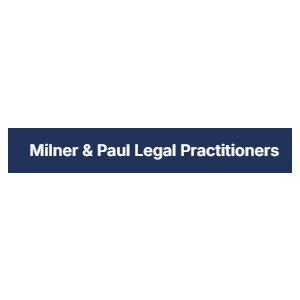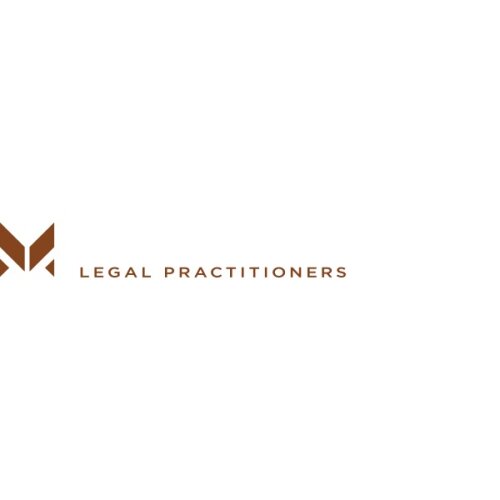Best Energy Regulatory Law Lawyers in Zambia
Share your needs with us, get contacted by law firms.
Free. Takes 2 min.
Or refine your search by selecting a city:
List of the best lawyers in Zambia
About Energy Regulatory Law in Zambia
Energy Regulatory Law in Zambia governs the generation, transmission, distribution, supply, and use of energy resources within the country. The primary focus is on electricity, petroleum, and other energy sources. The regulatory framework aims to ensure that energy is produced and supplied in a safe, reliable, economical, and environmentally sustainable manner. Energy Regulatory Law also addresses licensing, compliance, tariffs, consumer protections, renewable energy initiatives, and the promotion of efficient energy practices.
Why You May Need a Lawyer
Individuals and businesses often encounter situations where professional legal support is crucial in the energy sector. Some common scenarios include:
- Seeking or renewing licenses for the generation, supply, distribution, or transmission of electricity or petroleum products.
- Negotiating and drafting contracts for energy projects or service agreements.
- Resolving disputes with regulatory authorities, suppliers, or consumers.
- Ensuring compliance with complex regulatory requirements or environmental standards.
- Dealing with land acquisition, compensation, or community relations in energy projects.
- Handling mergers, acquisitions, or investments in the energy industry.
- Participating in tenders for public or private energy projects.
- Facing sanctions, penalties, or enforcement actions by regulatory bodies.
- Navigating tariff reviews or objections as an operator or consumer.
- Protecting intellectual property or negotiating the use of new technologies in energy projects.
Local Laws Overview
Several key statutes and regulatory bodies govern energy matters in Zambia:
- Energy Regulation Act: Establishes the Energy Regulation Board (ERB), which is the main regulator overseeing licensing, safety, technical, and economic regulation of electricity, fuels, and energy services.
- Electricity Act: Regulates the generation, transmission, distribution, and supply of electricity, including licensing requirements and consumer protection measures.
- Petroleum Act: Governs the exploration, extraction, and sale of petroleum resources, including licensing and environmental standards.
- Rural Electrification Act: Promotes rural access to electricity through designated funds and incentive schemes.
- Environmental Management Act: Ensures that energy projects comply with environmental protection and sustainability requirements.
The ERB is responsible for setting and reviewing tariffs, approving operational standards, handling consumer complaints, and enforcing compliance across the energy sector. The legal landscape also emphasizes the use of renewable energy and private sector participation under government policies and guidelines.
Frequently Asked Questions
What is the role of the Energy Regulation Board in Zambia?
The Energy Regulation Board (ERB) supervises and regulates the energy sector, including licensing, tariff approvals, compliance monitoring, handling complaints, and promoting efficient and reliable energy supply.
Who needs an energy license in Zambia?
Any individual or company involved in the generation, transmission, distribution, supply, or trading of electricity or petroleum products is required to obtain the appropriate license from the ERB before commencing operations.
How are energy tariffs determined?
Energy tariffs are set and periodically reviewed by the ERB to balance the interests of consumers and service providers. The process often involves public consultations, submissions from stakeholders, and examination of operational costs and market factors.
What are the penalties for operating without a license?
Operating without the required license is an offense that can result in fines, closure of the business, forfeiture of equipment, and even criminal prosecution.
Can a foreign company invest in Zambia's energy sector?
Yes, foreign companies can invest in the Zambian energy sector, subject to compliance with relevant laws, licensing conditions, and, in some cases, local partnership or ownership requirements.
How are renewable energy projects regulated?
Renewable energy projects follow the same general regulatory requirements as other energy projects but may benefit from incentives such as tax breaks, grant funding, or expedited licensing under government schemes.
What rights do energy consumers have?
Consumers have the right to safe, reliable, and reasonably priced energy, accurate billing, access to information, and a formal mechanism for lodging complaints with their providers or the ERB.
How can disputes in the energy sector be resolved?
Disputes can be resolved through direct negotiation, mediation, or by filing a complaint with the ERB. Legal proceedings in court may be the last resort if other mechanisms fail.
Do energy projects require environmental approval?
Yes, most energy projects, especially those with significant environmental impact, require approval from the Zambia Environmental Management Agency (ZEMA) based on detailed environmental assessments.
Where can I report illegal energy connections or unsafe practices?
Illegal connections or unsafe energy practices can be reported directly to the ERB, the relevant utility provider, or law enforcement agencies for investigation and enforcement action.
Additional Resources
If you need more information or guidance, the following resources and organizations can be helpful:
- Energy Regulation Board (ERB): The main regulator for the energy sector, providing licensing, standards, and consumer complaint handling.
- Zambia Environmental Management Agency (ZEMA): Responsible for environmental approvals and compliance in energy projects.
- Ministry of Energy: Sets national energy policy, oversees projects, and offers information on laws and incentives.
- Rural Electrification Authority (REA): Implements and manages rural electrification programs and initiatives.
- Zambia Chamber of Commerce and Industry: Useful for businesses seeking advice, partnerships, or advocacy in the energy sector.
- Legal Aid Board: Offers legal assistance to individuals who may not afford private legal services.
Next Steps
If you require legal assistance with an energy law issue in Zambia, consider the following steps:
- Identify your specific issue, such as licensing, a contract dispute, or a regulatory concern.
- Gather all relevant documents, including permits, correspondence, and business records.
- Consult a qualified lawyer who specializes in energy or regulatory law to assess your options.
- Contact the appropriate regulatory body, such as the ERB or ZEMA, if your matter involves compliance or official procedures.
- If finances are a concern, reach out to the Legal Aid Board for possible assistance.
- Stay informed about your rights and responsibilities to avoid future legal or regulatory challenges.
Taking these steps can help you address your legal needs efficiently and ensure you operate within the scope of Zambian Energy Regulatory Law.
Lawzana helps you find the best lawyers and law firms in Zambia through a curated and pre-screened list of qualified legal professionals. Our platform offers rankings and detailed profiles of attorneys and law firms, allowing you to compare based on practice areas, including Energy Regulatory Law, experience, and client feedback.
Each profile includes a description of the firm's areas of practice, client reviews, team members and partners, year of establishment, spoken languages, office locations, contact information, social media presence, and any published articles or resources. Most firms on our platform speak English and are experienced in both local and international legal matters.
Get a quote from top-rated law firms in Zambia — quickly, securely, and without unnecessary hassle.
Disclaimer:
The information provided on this page is for general informational purposes only and does not constitute legal advice. While we strive to ensure the accuracy and relevance of the content, legal information may change over time, and interpretations of the law can vary. You should always consult with a qualified legal professional for advice specific to your situation.
We disclaim all liability for actions taken or not taken based on the content of this page. If you believe any information is incorrect or outdated, please contact us, and we will review and update it where appropriate.
Browse energy regulatory law law firms by city in Zambia
Refine your search by selecting a city.
















